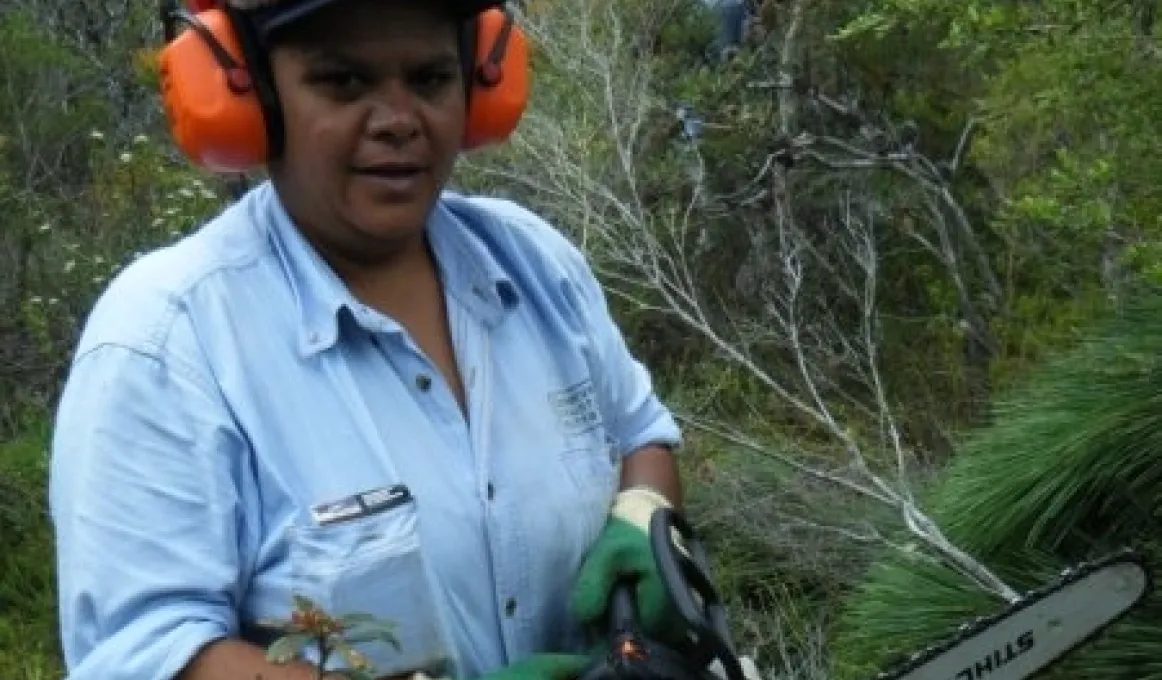Keeping country unspoiled

Fiona Anderson is a member of the Karuah and Forster Rangers and gets to work on country every day like generations of ancestors before her.
Fiona Anderson gets to wake up every morning and go to work caring for country, like generations of her ancestors before her.
Fiona is a member of the Taree Indigenous Development and Employment Ltd (TIDE) Karuah and Forster Rangers, an Australian Government funded Working on Country team based at Myall Lakes National Park on the mid-north coast of New South Wales. After starting as a ranger in 2009, Fiona now leads a team of five full-time Aboriginal rangers, working on a variety of programmes, including weed management in Myall Lakes and park facility maintenance.
Fiona says that the best part of her job is working on country with her colleagues to ensure that Myall Lakes National Park remains pristine for future generations, drawing on traditional approaches of her forebears wherever possible.
“Being able to work on country is a great privilege and it’s rewarding to see the improvements we’ve made to the park over the years,” Fiona said.
“We’re doing vital work and it’s really important for our people to learn about country and how our ancestors cared for our country.
“As a supervisor, I have to spend time in the office organising timetables and writing reports but it is always good to get back out on country, especially seeing how much the other rangers are enjoying their work,” she said.
The Karuah and Forster Rangers are managed by TIDE, whose CEO is respected Biripi Elder Uncle John Clarke. Uncle John says TIDE formerly delivered the Community Development Employment Program (CDEP) in the region and was able to transfer the CDEP employees working in natural resource management to full-time Working on Country Ranger jobs.
“Local Aboriginal people are ideal rangers,” Uncle John said.
“They recognise all the traditional bush foods, all the sacred sites and all the culture in the area so they take extra care to ensure they don’t damage their country.”
Uncle John recognises Fiona as a key person in the ranger team.
“We have few women rangers and even fewer as supervisors, so Fiona is an important role model for other young Aboriginal women considering a career as a ranger.”
Fiona agrees that Aboriginal women are under-represented as rangers and encourages other women to get involved in working on country.
“Aboriginal women have always looked after country so I’m aiming to get more women involved, and then we’ll start to see even better results,” Fiona said.
Find out more
The Working on Country programme recognises that protecting and conserving the environment is a shared responsibility that also provides sustainable employment for Indigenous people.
Working with leaders, communities, individuals and employers to get adults into work is one of the Australian Government’s key Indigenous Affairs priorities.